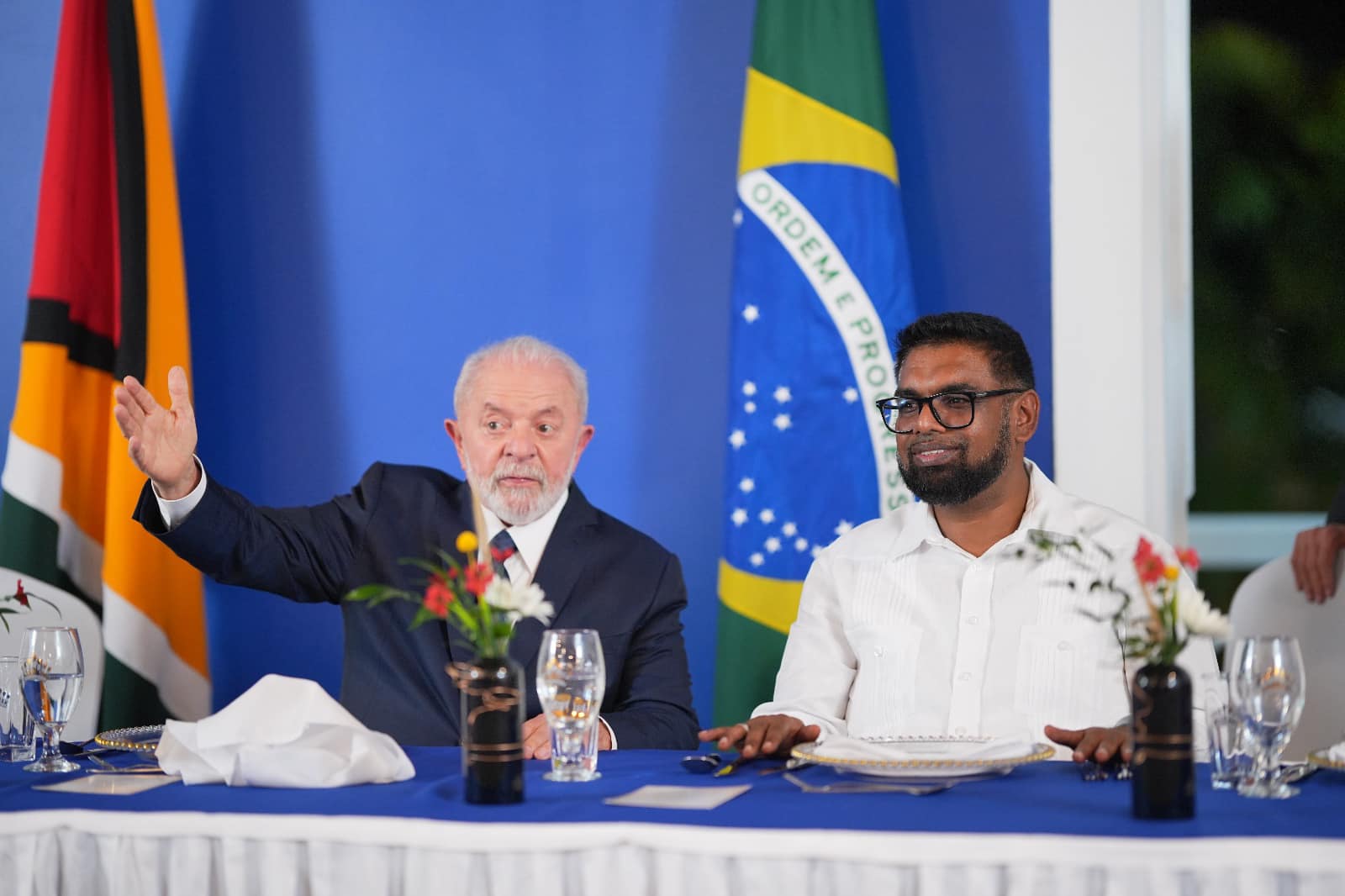Rashaed Esson
Staff Writer
#TurksandCaicosIslands, March 4, 2024 – The World’s tenth largest economy has entered into serious engagement with CARICOM; it is one of the highlights of last week’s 46th Regular Meeting of the Community staged in Guyana and it could mean support for disaster management and young men in Haiti.
Brazil and CARICOM are working to form concrete bonds with what is called the CARICOM Brazil Joint Commission, a major development for both nations according to incoming CARICOM chair Irfaan Ali, the president of Guyana.
He expressed that the Commission originated from high-level talks over a decade ago, with a technical cooperation agreement and an Memorandum of Understanding on technical cooperation signed between CARICOM and Brazil in 2010.
Speaking at a special engagement with the president of Brazil, at the 46th CARICOM Heads of Government Meeting hosted by Guyana, Ali pointed out that this presents a unique opportunity to build a fortified future with Brazil, one that has a plethora of collaboration opportunities.
Regarding this, he speaks to Brazil’s vast experience and potential help with disaster preparedness, aiding CDEMA, the Caribbean Disaster Emergency Management Agency.
“Our region, comprised of small vulnerable states, consistently faces the threat of natural disasters especially Hurricanes. To address this, our regional agency CDEMA, has been playing a crucial role in developing and strengthening early warning systems across the Caribbean region; we believe the expertise of Brazil can be a valuable area of cooperation.”
Additionally, President Ali referred directly to Brazil’s leadership, which he describes as invaluable, in renewable energy and sustainable development.
Another major opportunity for CARICOM with Brazil that Ali called attention to, is meeting the 25 by 2024 initiative, that is the goal to reduce food import bill by 25 percent. For this, says there are lessons that can be learned and various avenues for collaboration to maximize the region’s food production and economic development.
Investment opportunities were also underlined as well as technical and vocational educational training, an area that can develop human resources to cater to the demands of the economy in the future.
Luiz Inácio Lula da Silva, president of Brazil, gave a detailed speech at the meeting. Pointing to the urgent need to help Haiti, he revealed that Brazil is offering vocational training to the Haitian Police and that they will also open a vocational training centre for young Haitians in the south of the country, a centre worth 17 million dollars.
In his comprehensive address, da Silva expressed that after years of turning its back to the Caribbean, South America, Latin America as well as the African continent and after only looking to the European Union and the United States, the so called richer countries, in efforts to attract investment, Brazil is and has been ready to prioritize the relationship with CARICOM and the other regions. This decision, he says, came after he took office in 2003.
With that in mind, he says Brazil is ready to renew its presence in the region and the government is looking to pave its way there, to overcome the obstacles of connection as he expressed.
Highlighting the collaboration opportunities for CARICOM, Lula tugged at Ali’s statement on agriculture, saying that Brazil can open doors allowing the region to meet supply demands as well strengthen food security.
He also said, “Brazil can offer food stuffs and competitive prices. But it can also help increase local agricultural productivity.”
Following this bold but true statement, Lula makes another bold move, inviting CARICOM countries to join the global alliance against hunger and poverty that will be launched by the Brazilian G20 chairmanship. For this, he says the aim is to promote public policies and mobilize resources.
Furthermore, to help the region in its battle against climate change effects, the president says Brazil is seeking to work with small Island developing states.
In relation to this, he lauds the implementation of the Loss and Damage Fund, but says its not enough to end the fight, given that there needs to be more funds to increase adaptation and to implement in its entirety, the 2030 agenda.
Da Silva continued to invite other CARICOM member states, to follow in the footsteps of Saint Vincent and the Grenadines, to join what he called the United for our Forest Declaration, also joining Guyana and Suriname which are already members of the Amazon Cooperation Treaty Organization.


 News5 days ago
News5 days ago
 News1 week ago
News1 week ago
 Caribbean News6 days ago
Caribbean News6 days ago
 News5 days ago
News5 days ago















